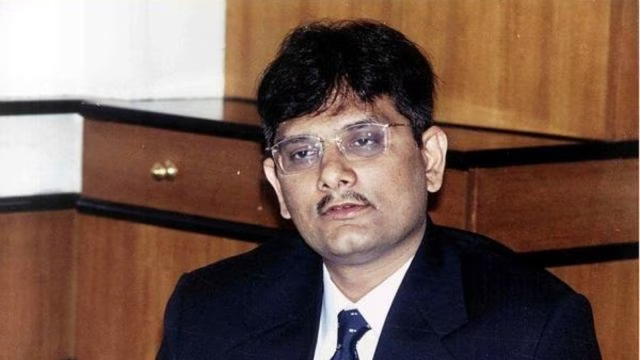The latest in the Ketan Parekh case – the Securities and Exchange Board of India (SEBI) has made it unambiguously clear it does not trust Ketan Parekh with that freedom. According to Indian Express, the market regulator has opposed Parekh’s application to travel to multiple countries over four months between October 2025 and February 2026.
SEBI’s stand on Parekh’s travel application
The regulator relied on an interim order issued on January 2 this year, which debarred Parekh and two associates for alleged front-running. That order documented how Parekh relayed non-public, time-sensitive information from Singapore-based Rohit Salgaocar to his circle of traders within minutes, enabling them to rake in illicit profits, as per the Indian Express report.
SEBI accused Parekh of systematically misusing earlier permissions granted on “compassionate” grounds. Investigations, it noted, revealed that while claiming personal needs, Parekh had been busy engineering fraudulent trades through encrypted WhatsApp groups with coded names like “Jack-ST” and “Jack-Saro.” Such behavior, Sebi argued, shows a pattern: travel requests have repeatedly doubled up as shields for covert activity, the report added.
SEBI questions motive
The regulator questioned the latest request and debayed whether this is a deliberate attempt to sidestep oversight and possibly settle abroad. The regulator said that the application carries a “sinister motive” to avoid court proceedings and Indian regulatory scrutiny, and to operate from jurisdictions where extradition remains uncertain, as per the report.
Adding weight to its case, SEBI pointed to Parekh’s deliberate use of multiple SIM cards under aliases such as “Jack,” “Boss,” “Bhai,” and “Wellwisher.” Such tactics, it argued, reveal a clear intent to hide identity and avoid detection. Allowing him to travel now, the regulator said, would make monitoring impossible, the report added.
Extradition concerns loom large
Behind SEBI’s resistance is a broader policy concern. India has struggled for years to bring back financial fugitives who slipped into countries with which extradition treaties are either absent or ineffective. From Vijay Mallya to Nirav Modi, the precedent is sobering. SEBI does not want a repeat, and certainly not with someone who has already demonstrated a willingness to exploit legal leniency.
Special Public Prosecutor Anubha Rastogi echoed this before the court, pointing out that Parekh has not even challenged the January 2 interim order. Granting a four-month blanket permission, she argued, would practically erase the ability to trace his activities, as per the report.
Money, markets, and cross-border ties
The January order directed Parekh and his associates to return Rs 65.77 crore of wrongful gains, while barring them from trading in securities altogether. SEBI highlighted that Singapore one of Parekh’s requested destinations, was central to his alleged operations with Salgaocar. IP records showed no fewer than 151 online interactions between the two, ranging from WhatsApp to internet calls. The regulator described this as proof of a cross-border conspiracy that would flourish beyond the reach of Indian authorities if Parekh were permitted to leave.
According to SEBI, the accused may employ encryption and cryptocurrency to erase digital footprints, making detection virtually impossible once outside Indian jurisdiction. The vagueness of his application worsens matters: while he mentioned the European Union, he did not specify which countries, leaving regulators wary of a silent exit to a no-extradition haven.
Past permissions as precedent
Parekh’s lawyers, for their part, emphasised that this is not the first time he has sought and secured travel rights. The Supreme Court permitted him to go to the UK in 2021 for his daughter’s medical treatment. The special court approved travel in 2022. As recently as December 2023, he was allowed to visit the UK, Dubai, Singapore, the EU, and the US. The defence argued that the current request consolidates travel plans into one application to avoid repeated filings.
Yet, as SEBI pointed out, past permissions were not free of controversy. Each trip carried suspicions of parallel dealings, undermining the credibility of his claims now.
The Man Behind the Scandals
To understand why SEBI is uncompromising, one must recall Parekh’s legacy. A chartered accountant turned broker, he became notorious at the turn of the millennium for manipulating shares of information, communication, and entertainment (ICE) companies. Using circular trading and funds routed through Madhavpura Mercantile Cooperative Bank and the Kolkata Stock Exchange, he inflated the so-called K-10 stocks.
Parekh was not working in isolation. He was mentored by Harshad Mehta, the central figure of the 1991 securities scam. Riding on the dotcom boom of 1999–2000, Parekh orchestrated a bull run that lured countless investors, only to collapse spectacularly when the bubble burst. The damage was widespread markets tanked, UTI’s collapse followed, and SEBI was forced to tighten regulations.
His record since then reads like a rap sheet, banned from markets for 14 years in 2003, convicted by a CBI court in 2014 and sentenced to two years in prison, repeatedly fined for non-payment of penalties, and repeatedly accused of fresh trading violations. It is this long history that frames the present debate.

